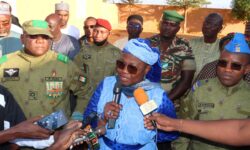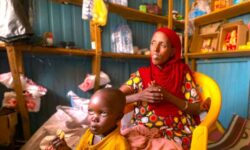African states, from the Democratic Republic of Congo to Mali, are stepping up against foreign mining giants.
The exploitation of gold in Africa exposes a harsh reality. On this continent, which hosts some of the world’s richest gold reserves, most of the profits are fleeing from local populations, instead fueling criminal networks and exacerbating conflicts. However, a recovery dynamic is emerging.
The artisanal sector under pressure
The World Gold Council made a clear observation: artisanal and small-scale mining represents 20% of global gold supply and mobilizes 80% of the sector’s workforce. This activity, vital for millions of people in over 80 countries, continues to be marked by dangerous working conditions. Mercury use, environmental standard violations, and child exploitation are common.
In Africa, artisanal mining is particularly widespread in Burkina Faso, Mali, Ghana, and the Democratic Republic of Congo (DRC). By mainly operating in the informal sector, it paves the way for illegal practices that deprive states of important resources. In 2022, 435 tons of gold were illegally extracted on the continent, amounting to $30.7 billion evaporated.
The choking of armed groups
Artisanal gold attracts criminal greed. In the Sahel, whether affiliated with Al-Qaeda or the Islamic State, terrorist groups impose their laws on local communities under the guise of religious duties. These “taxes” directly fuel armed insurgency and regional instability.
In this dark game, the Wagner group, which has now replaced Russia, has succeeded in taking its share. Operating in Central and West Africa, it is reported to have earned over $2.5 billion in gold mining revenues since 2022, with funds being reinvested into Russian military operations in Ukraine.
A response is organizing in Africa
Faced with this situation, some African countries are fighting back. Mali, in particular, is running an unprecedented campaign against large foreign mining companies. In October 2024, Bamako demanded $512 million from Barrick Gold for tax debts. The Canadian giant, which controls 80% of the Loulo-Gounkoto mines, had to temporarily suspend the procedure.
The noose is also tightening around Resolute Mining Ltd. In November 2024, its CEO, Terry Holohan, was arrested with several executives in a Bamako hotel. The Australian company, which holds 80% of the strategic Syama mine, is facing charges of fraud and public property damage.
This offensive is part of a complete overhaul of Mali’s mining sector. The Minister of Mines announced that revising contracts with B2Gold, Allied Gold, and Robex should bring in an additional 245 billion CFA francs per year. The goal is to increase state participation in mining projects from 20% to 35% and reduce tax advantages for foreign companies.
Human and environmental costs
On the ground, local communities are paying a heavy price. Deforestation is accelerating, and soils and waterways are being polluted by mercury and cyanide. Conflicts over resource control often force populations to flee.
In the DRC, the situation is particularly critical. Armed militias control most of the artisanal mining and subject miners to systematic theft. A 2017 report revealed that almost all of the country’s artisanal gold escaped official channels.
Initiatives to formalize artisanal mining are emerging. The Minamata Mercury Convention and the World Gold Council’s Responsible Mining Principles provide regulatory frameworks. However, their implementation is hindered by a lack of international cooperation and political will.
Nevertheless, the message from African governments to foreign investors is hardening: the era of unbalanced contracts is over. Mining companies will have to contribute more to local development and exercise greater control over their activities. This dynamic, observed in Mali, Burkina Faso, and Niger, could mark a turning point in the management of the continent’s gold resources.

















